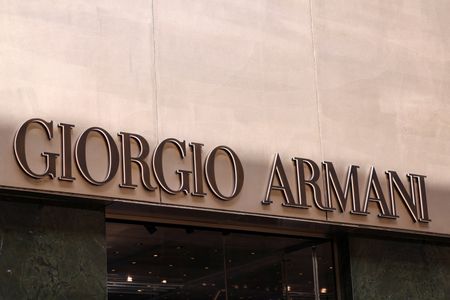By Alvise Armellini and Alessandro Parodi
ROME (Reuters) -Italy’s competition authority on Wednesday said it was probing whether Armani and Dior had misled consumers, following news of worker exploitation inquiries by prosecutors into some suppliers of the two luxury groups.
In recent months, Milan prosecutors ordered that several Chinese-owned firms in Italy – producing luxury goods for Dior and Armani – be placed under judicial administration, accusing them of systematically abusing their employees.
The authority alleged that Armani and Dior “emphasised the craftsmanship [of their products] and the excellence of their workmanship” while relying on workshops employing people on too low salaries, working long hours and in violation of health and safety rules.
In a statement, the agency indicated that its probe focused on some companies of the Armani Group and the LVMH-controlled Dior Group, and that inspections were carried out at the targeted companies on Tuesday.
“The (Armani and Dior) companies may have made untrue ethical and social responsibility claims, in particular with regard to working conditions and compliance with legality at their suppliers,” the antitrust agency said.
They were placed under investigation “for possible unlawful conduct in the promotion and sale of articles and clothing accessories, in breach of the (Italian) Consumer Code,” it said.
Armani Group expressed confidence in a “positive result following the investigation” adding in a statement that its companies were “fully committed” to cooperating with the authorities, and that it believed “that the allegations have no merit”.
LVMH did not immediately respond to a request for comment.
Breaches of the consumer code in Italy are punishable with fines ranging from 5,000 euros ($5,456) to 10 million euros ($11 million).
The luxury industry’s supply chain has come under increased scrutiny by consumers and investors in recent years. To reduce risks to their reputation, fashion labels have curbed the number of sub-contractors and brought production in-house.
Italy’s antitrust agency also polices consumer rights and unfair commercial practices. Last year, it fined companies owned by fashion influencer Chiara Ferragni almost 1.1 million euros over misleading charity claims on a Ferragni-branded Christmas cake.
($1 = 0.9166 euros)
(Additional reporting by Elisa Anzolin, editing by Miral Fahmy, Bernadette Baum and Louise Heavens)





